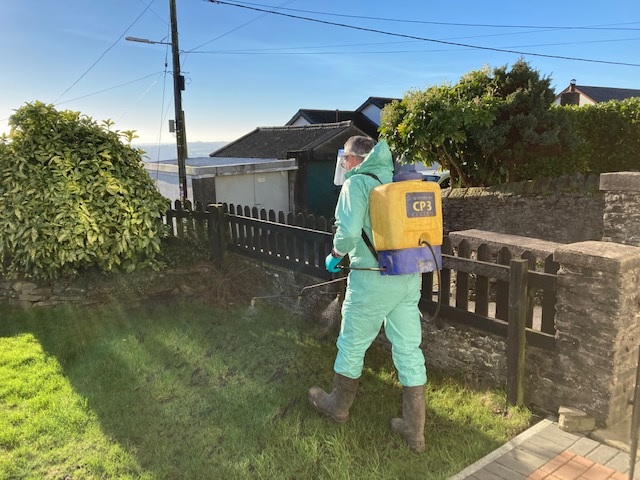
In order to successfully remove weeds from your property, it helps to have an understanding of how the weed killer you use actually works. But first, you will need to know what type of weed killer you are using.
These are often categorised into the following types; selective, non-selective, systemic and contact weed killers. Before using any type of weed killer, be sure to research exactly what type it is and whether it not it is suitable for your specific gardening needs. Oh and also ensure you read any directions given to you by the manufacturer in order to gain maximum effectiveness.
Types of Weed Killer & How They Work
Selective Weed Killers
These type of weed killers work to target specific plant types, without affecting others that may be surrounding them. For example, certain selective weed killers aim to only affect broad-leaved plants such as buttercup, daisy and dandelion, while at the same time having zero impact of narrow-leaved plants such as grass. Selective weed killers are the most common weed killers used in many industries and sectors such as crop production. It is important to note, however, that just because a weed killer is labelled as a selective killer, it doesn't automatically mean that it won't affect some of your desirable plants. If you begin to use too much of the product, you will most likely start to notice detrimental effects in your desirable plants as well as the ones you are trying to target. Selective weed killers are created to target a plant's specific vascular and transport system.
Non-Selective Weed Killers
Non-selective week killers, as you may have already guessed, are the opposite to selective week killers and work to kill all plant life that is exposed to it. They are usually only used when you need to eliminate all plant growth in a targeted area, although they can be applied to the target plants and away from desirable plants. Some non-selective herbicides have even been known to act selectively in certain situations. For example, a lot of desirable crops have been genetically modified to resist the application of certain nonselective weed killers.
Contact Weed Killers
As the name suggests, contact weed killers work to eliminate weeds whenever they come into contact with them, regardless of their type. Here, the plant's stomata (small openings) consume the applied herbicide which causes it to be killed. However, in order for contact weed killers to be effective, the stomata need to be open. These only open when the plant is actively growing and throughout the day whilst photosynthesis is taking place.
Contact weed killers are used by many lawn care enthusiasts and homeowners as they have zero impact on the garden soil surrounding the target plants. A very popular type of contact week killer is glyphosate, which when applied, becomes trapped inside soil particles. This makes the soil unavailable to plant roots, leading to target plants becoming redundant in the soil. Contact herbicides take roughly a fortnight to take full effect and are an extremely popular choice for tackling and managing annual weeds.
Systemic Weed Killers
The majority of weed killers will fall under the category of systemic herbicides. This means that when entering the targeted plant, the weed killer works its way through its transport system to target and kill off each area. An example of a systemic herbicide in action would see it entering a plant through its foliage and working its way down the plant until it reaches its roots, where it eventually kills the weed completely.
Here at Lawn & Weed Expert, we provide effective, professional weed control services that ensure any weeds on your property are appropriately dealt with. Off-the-shelf weed killers may seem effective at first, but unless you address the conditions that allowed for weed growth in the first place, those weeds will soon grow back! That is why we use broad-spectrum systemic herbicides that are safe and highly effective! You can learn more about what we can offer by visiting our page below.
Our Weed Control Services >
For more information on how Lawn & Weed Expert can help you, be sure to get in touch with a member of our team, we'd love to hear from you.